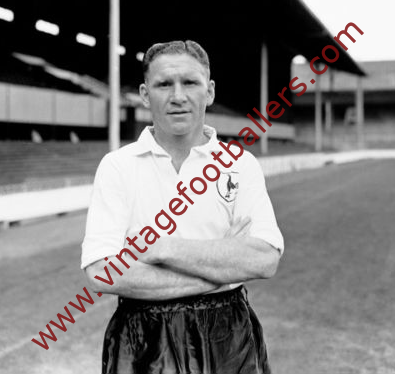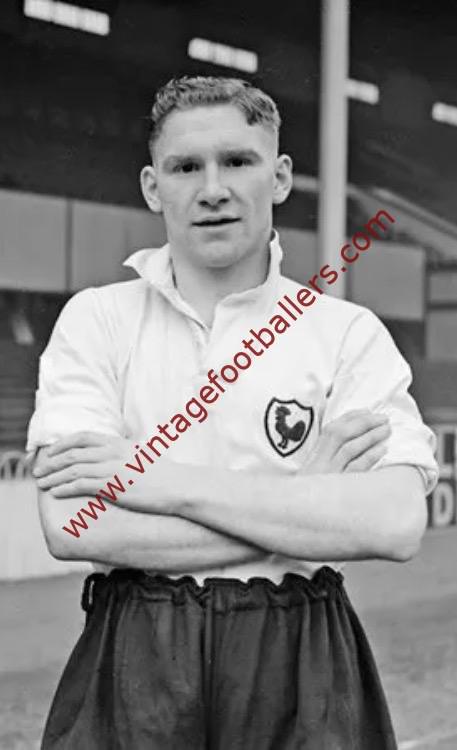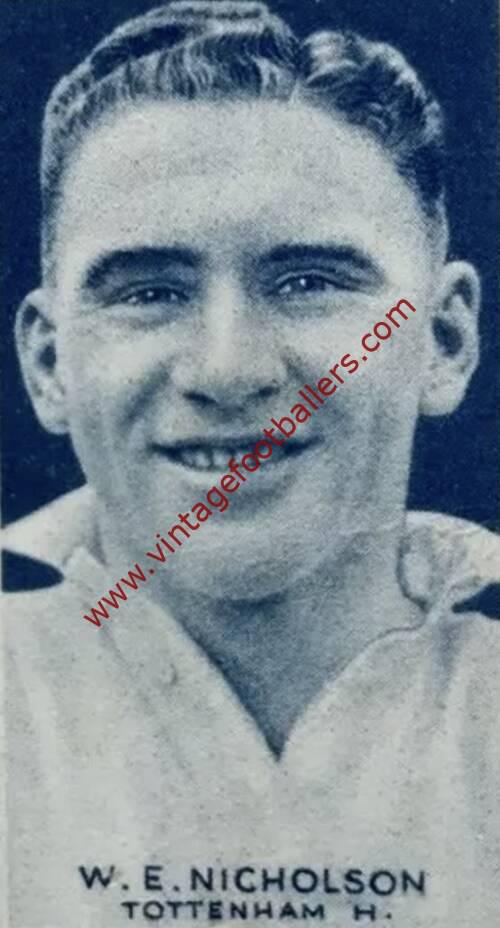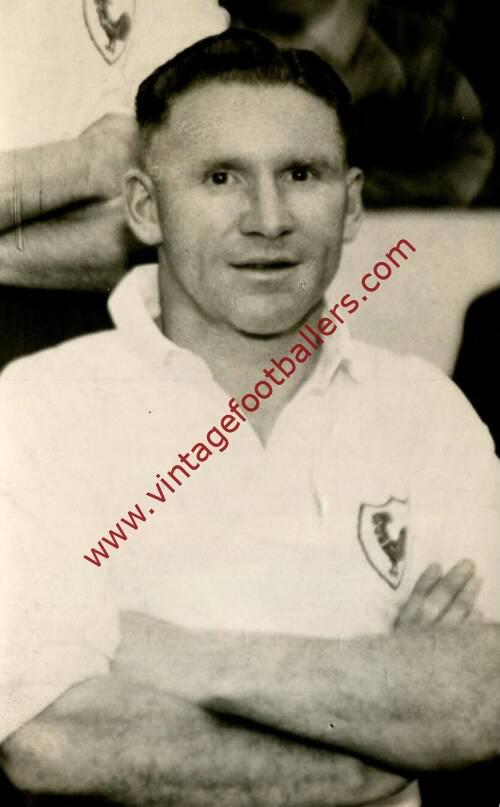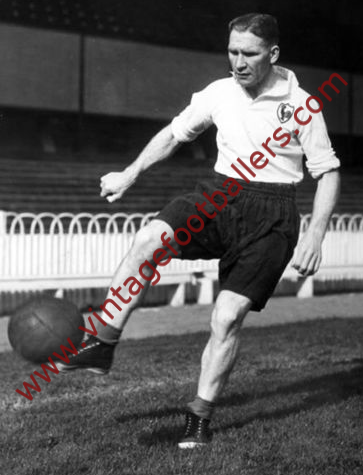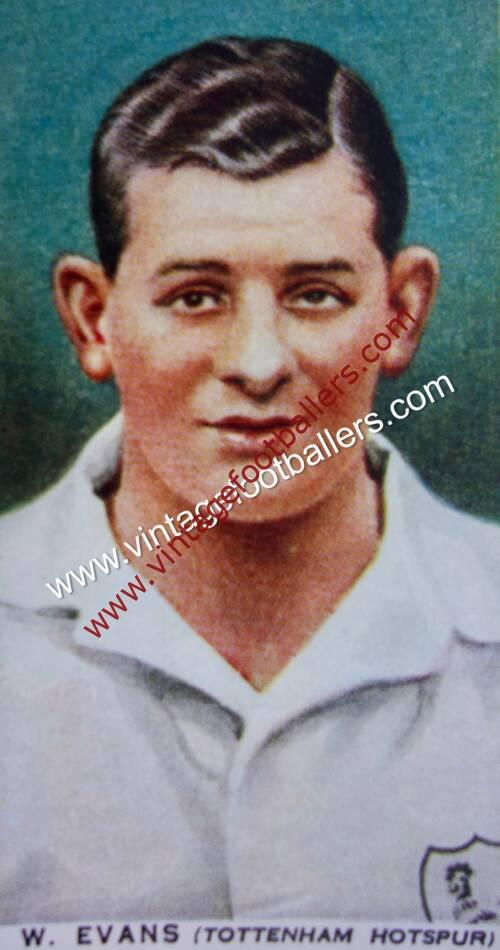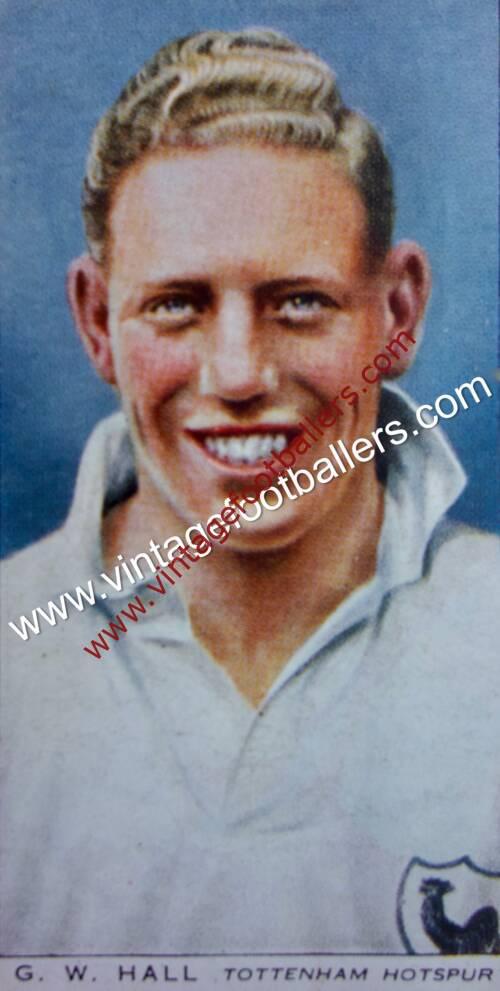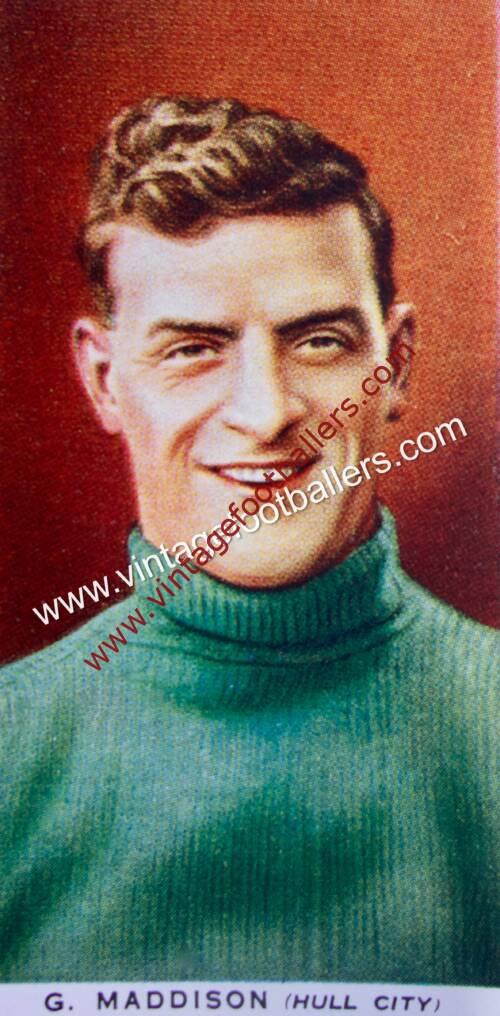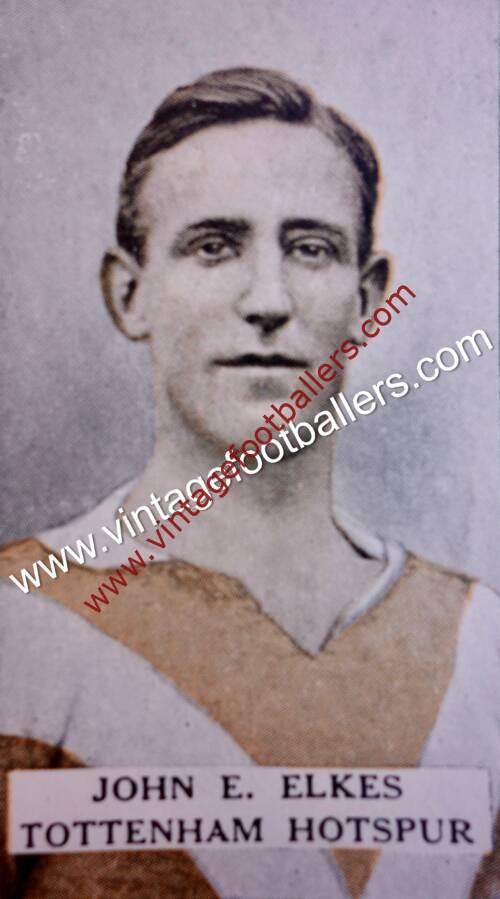Description
Scarborough, Yorkshire born right half Bill Nicholson is one of the greatest figures in the history of Tottenham Hotspur, being player, coach, manager and scout who had a 36 year association with the club both sides of the Second World War. He began his football career playing with Scarborough Working Mens Club in 1934 and Scarborough Young Liberals in 1935. At the age of 17 he was invited to a trial at Tottenham Hotspur, where he arrived on 16th March 1936. After a month’s trial, he was taken on as a groundstaff boy at £2 a week. He played for Spurs’ nursery club Northfleet and won a Kent Senior Cup winners medal in the Final against Dover in 1937. He signed as a full professional for Tottenham Hotspur in August 1938, and made his Football League debut against Blackburn Rovers at Ewood Park on 22nd October 1938. Prior to the abandonment of peacetime football in September 1939, he had made 11 appearances for Spurs.
Nicholson joined the Durham Light Infantry on the outbreak of the Second World War in September 1939. As a professional footballer he was sent on a Physical Education course and was made a sergeant-instructor, training new intakes of troops throughout the War. During the War he was a guest player for several clubs including Sunderland, Middlesborough and Newcastle United, for whom he played on 19 occasions.
In 1946 Nicholson returned to the Spurs first team, playing at centre half for two seasons, then moving to right half for a further six years, where he was a virtual ever present until 1953. He was a vital part of the legendary “push and run” Tottenham team which won the Second Division Championship in 1949-50 and then the League Championship in the 1950-51 season, finishing as League runners up in 1951-52. He also played in Tottenham’s 2-1 win over Newcastle United in the FA Charity Shield at White Hart Lane in September 1951, and was twice a member of losing FA Cup semi final teams, in 1948 losing to a Stan Mortensen hat-trick for Blackpool at Villa Park, and in 1953 they lost to eventual winners Blackpool, again at Villa Park.
He eventually made his full international debut for England against Portugal at Goodison Park on 19th May 1951 in a Festival of Britain celebration match, and made an immediate impression by scoring with his first touch of the ball after only 19 seconds. This proved to be his only international appearance due to injuries, the dominance of Billy Wright, and his habit of putting his club before his country, although he was frequently a reserve or an unused substitute, and also won 4 England “B” caps between May 1948 and May 1950. He was also a non playing member of England’s 1950 World Cup Finals squad that was knocked out in the group stages, famously losing to the United States of America in Brazil.
Nicholson is quoted as saying “My duty is to get fit for Tottenham. Well, they pay my wages, don’t they?”. Of his only England appearance he said “Stan Pearson nodded it back and I ran on to let go a first time shot which, from the moment I hit it, I knew was going in. But for the next game they brought back Billy Wright and I accepted that because he was the better player”. Nicholson is the only player to have scored for England with his first touch in international football and subsequently never to play at that level again. He also played once for The Football League.
He played his last match for Tottenham in a home defeat to Everton in December 1954 having scored 6 goals in 345 appearances, and he formally announced his playing retirement in 1955.
Nicholson took a Football Association (FA) coaching course and joined the coaching staff at Tottenham upon his retirement as a player. He quickly rose through the ranks of the coaching staff to become first team coach in 1955 and Assistant Manager in August 1957. He subsequently assisted England manager Walter Winterbottom at the 1958 World Cup.
On 11th October 1958, Nicholson was called to the Tottenham boardroom and appointed manager of the club in succession to Jimmy Anderson. At the time the club was sixth from the bottom of the First Division and there was little indication that the greatest period in the history of the club was about to begin. That afternoon, in the club’s first game under Nicholson’s management, Tottenham Hotspur beat Everton 10-4 at White Hart Lane. This represented a new club record, surpassed only by their 13-2 (10-0 at half-time) FA Cup replay win over Crewe Alexandra in the 1959-60 season.
Less than two years later Spurs wrote their place in the history books when they won the Football League Championship and the FA Cup Double in the 1960-61 season, the first “double” of the twentieth century. Spurs dominated the opposition that year, winning their first eleven games and scoring 115 goals in 42 games. The following year they won the FA Cup again, and narrowly missed a place in the European Cup Final, losing to Benfica in the semi final.
In the 1962-63 season, Nicholson again put Spurs in the history books when they became the first British club to win a major European trophy. In Rotterdam on 15th May 1963, Spurs defeated favourites Atlético Madrid 5-1 to win the European Cup Winners’ Cup.
In 1967 Nicholson’s Spurs won their third FA Cup in seven years by beating Chelsea in the first ever all-London Final. This was followed by a string of trophies in the early 1970’s – the League Cup was won in 1970-71 and 1972-73, and the UEFA Cup in 1971-72.
As the 1970’s wore on, Nicholson became increasingly disillusioned with football, in particular the increased player wages and the endemic hooliganism. He was appalled by the hooliganism he witnessed at the UEFA Cup Final that Spurs lost to Feyenoord in May 1974. Nicholson decided to resign after a poor start to the 1974-75 season and losing 4-0 to Middlesbrough in the League Cup in September 1974. Nicholson later said of his resignation: “The simple truth was that I was burned out, I had no more to offer.”
His tenure ended in acrimony as Nicholson wished to select for his replacement Danny Blanchflower as manager and Johnny Giles as player-coach, but Spurs chairman Sidney Wale was angered that Nicholson had contacted Giles and Blanchflower without his knowledge. Although Nicholson had intended to stay at the club as an advisor, the club chose to sever all ties with a £10,000 payoff and refused Nicholson a testimonial.
After quitting the Spurs manager’s job, Nicholson spent a year at West Ham United as an adviser to Ron Greenwood. When Keith Burkinshaw became Spurs’ manager in 1976, one of his first requests was that Nicholson be brought back to White Hart Lane as a consultant. His knowledge and experience were invaluable, and he showed that he still had an eye for players by recommending several to Burkinshaw, including Graham Roberts, Tony Galvin, and Gary Mabbutt. Nicholson continued to work as a consultant until 1991, when he was awarded the title of Club President.
Nicholson was appointed an OBE in 1975. In 1999 an approach road to White Hart Lane was named Bill Nicholson Way in his honour. In 2001, the club played a testimonial match in Nicholson’s honour against Italian club ACF Fiorentina. In 2003, a year before his death aged 85, Nicholson was inducted into the English Football Hall of Fame in recognition of his impact as a manager. Tottenham fans had also campaigned for many years to have Nicholson knighted in recognition of his outstanding achievements and contribution to football but they were unsuccessful.

